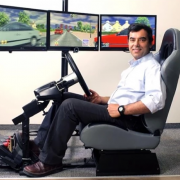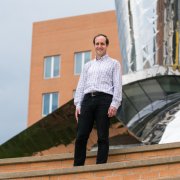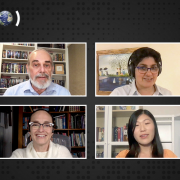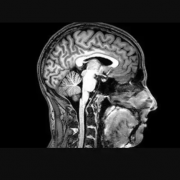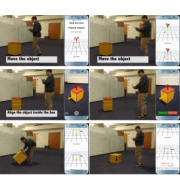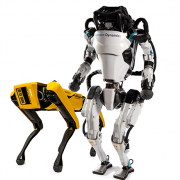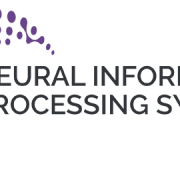March 16, 2021 - 4:00 pm
Dr. Pramod R.T., Kanwisher Lab
Host: Prof. Nancy Kanwisher (MIT)
Abstract: Successful engagement with the world requires the ability to predict what will happen next. Although some of our predictions are related to social situations concerning other people and what they will think and do, many of our predictions concern the...
Abstract: Successful engagement with the world requires the ability to predict what will happen next. Although some of our predictions are related to social situations concerning other people and what they will think and do, many of our predictions concern the...
March 9, 2021 - 4:00 pm
Panelists: Profs. Christos Papadimitriou (Columbia), Tomaso A. Poggio (CBMM, MIT) and Santosh Vempala (...
Abstract: About fifty years ago, holography was proposed as a model of associative memory. Associative memories with similar properties were soon after implemented as simple networks of threshold neurons by Willshaw and Longuet-Higgins. It turns out that the recurrent Willshaw networks were very...
March 2, 2021 - 2:00 pm
Prof. Murray Shanahan, Imperial College London
Host: Prof. Josh Tenenbaum (MIT)
Abstract: The challenge of endowing computers with common sense remains one of the major obstacles to achieving the sort of general artificial intelligence envisioned by the field’s founders. A large part of human common sense pertains to the physics of the...
Abstract: The challenge of endowing computers with common sense remains one of the major obstacles to achieving the sort of general artificial intelligence envisioned by the field’s founders. A large part of human common sense pertains to the physics of the...
CBMM Brains, Minds, and Machines Seminar Series: Computation and Learning with Assemblies of Neurons
February 23, 2021 - 4:00 pm
Prof. Santosh Vempala, Georgia Tech.
Host: Prof. Tomaso Poggio (MIT)
Abstract: Despite great advances in ML, and in our understanding of the brain at the level of neurons, synapses, and neural circuits, we still have no satisfactory explanation for the brain's performance in perception, cognition, language, memory, behavior; as Nobel...
Abstract: Despite great advances in ML, and in our understanding of the brain at the level of neurons, synapses, and neural circuits, we still have no satisfactory explanation for the brain's performance in perception, cognition, language, memory, behavior; as Nobel...
February 16, 2021 - 4:00 pm
Mengmi Zhang, Jie Zheng, and Will Xiao (Kreiman Lab)
Host: Prof. Gabriel Kreiman (Children's, Harvard)
Speaker: Mengmi Zhang
Title: The combination of eccentricity, bottom-up, and top-down cues explain conjunction and asymmetric visual search
Abstract: Visual search requires complex interactions between visual processing, eye movements, object...
Speaker: Mengmi Zhang
Title: The combination of eccentricity, bottom-up, and top-down cues explain conjunction and asymmetric visual search
Abstract: Visual search requires complex interactions between visual processing, eye movements, object...
February 9, 2021 - 4:00 pm
Dr. Andrzej Banburski and Simon Alford (Poggio Lab)
Host: Dr. Hector Penagos (MIT)
Abstract: Current machine learning algorithms are highly specialized to whatever it is they are meant to do — e.g. playing chess, picking up objects, or object recognition. How can we extend this to a system that could solve a wide range of problems? We argue that...
Abstract: Current machine learning algorithms are highly specialized to whatever it is they are meant to do — e.g. playing chess, picking up objects, or object recognition. How can we extend this to a system that could solve a wide range of problems? We argue that...
February 2, 2021 - 5:15 pm
Prof. Amnon Shashua, CEO of Intel Mobileye and CBMM External Advisory Committee member, will speak as part of the MISTI MIT-Israel's Breaking Boundaries: Israelis in Science, Technology and the Economy series. CBMM's Director, Tomaso Poggio will moderate, and we will also hear from An Jimenez (Computation & Cognition '21), a MISTI MIT-Israel alumna.
MISTI MIT-Israel would like to thank the MIT Quest for Intelligence, CSAIL, the Center for...
January 14, 2021 - 1:30 pm
Brain and cognitive sciences professor will lead the Institute’s interdisciplinary initiative to advance research in natural and artificial intelligence.
School of Science | MIT Schwarzman College of Computing
James DiCarlo, the Peter de Florez Professor of Neuroscience, has been appointed to the role of director of the MIT Quest for Intelligence. MIT Quest was launched in 2018 to discover the basis of natural intelligence, create new...
January 12, 2021 - 12:00 pm
EECS faculty head of artificial intelligence and decision making honored for significant and extended contributions to the field of AI.
Jane Halpern | Department of Electrical Engineering and Computer Science
Antonio Torralba, faculty head of Artificial Intelligence and Decision Making within the Department of Electrical Engineering and Computer Science (EECS) and the Thomas and Gerd Perkins Professor of Electrical Engineering...
January 12, 2021 - 11:45 am
First virtual MIT Better World gathering featured MIT researchers sharing some of the ways the Institute excels as a hub of science and innovation.
Watch Video
Nicole Estvanik Taylor | MIT Alumni Association
“Our topic tonight, science and discovery, lives at the heart of MIT.” In his welcoming remarks for the first virtual MIT Better World gathering, W. Eric L. Grimson, MIT chancellor for academic advancement, detailed some of the...
December 16, 2020 - 10:00 am
Another recent study found that a unique signature exists in the brains of people suffering from loneliness, which makes them fundamentally distinguishable from others.
Sandipan Talukdar
While loneliness has been a matter of concern for psychiatrists and psychologists since time immemorial, social distancing, brought about by COVID-19, is emerging as an even greater threat, pushing a considerable section of people into isolation.
The adverse...
December 11, 2020 - 1:30 pm
Written by: Dan Gutfreund
Exactly one year ago, a team of researchers from the MIT-IBM Watson AI Lab and the Center for Brains, Minds, and Machines presented a new dataset, called ObjectNet, for testing object recognition models in images.
As opposed to the standard approach for large scale dataset construction in the field of computer vision, which relies on scraping images off the internet and crowdsourcing the labeling process, ObjectNet data...
December 9, 2020 - 9:45 am
Hyundai Motor Co. has decided to acquire the US robotics firm Boston Dynamics Inc. from SoftBank Group for slightly less than 1 trillion won ($921 million) and will finalize the acquisition at its Dec. 10 board meeting, according to sources with knowledge of the matter on Dec. 8.
The acquisition will become the first buyout deal for Chung Euisun as Hyundai Motor Group’s chairman since he assumed the chairmanship last October, accelerating the...
December 7, 2020 - 11:00 am
The Center for Brains, Minds and Machines is well-represented at the thirty-fourth Conference on Neural Information Processing Systems (NeurIPS 2020).
IBM-MIT launch new AI challenge to push the limits of object recognition models
Below, you will find some of the listings to papers/proceedings/posters accepted and accompanying coverage:
CBMM is proud to have hosted this year's Shared Visual Representations in Human & Machine Intelligence,...
December 4, 2020 - 9:45 am
The Association for Psychological Science (APS) is pleased to announce its lifetime achievement award recipients for 2021. As the premier international organization dedicated to advancing scientific psychology across disciplinary and geographic boarders, APS represents more than 30,000 leading scientists, academics, clinicians, researchers, educators, administrators, and students from more than 80 countries. APS’s three lifetime achievement...






